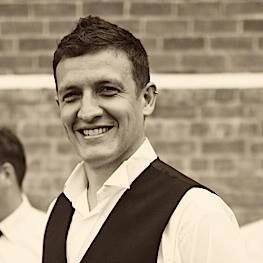Up the creek
Sanctuaries of certainty
In 2020, our family spent a lot more time up the creek and exploring bushland close to home. These seemed like the ideal locations for ‘home-schooling’ during the pandemic and a calming and engaging place to counter a human world that felt on the brink of unravelling. We searched for tadpoles, collected stones and sticks, sketched creatures, learned the names of plants and birds, talked to animals, and imagined other worlds.
Natural places close to home offered small sanctuaries of certainty, known and nurturing, away from the news of statistics, border closures, daily updates and death tolls. I caught a glimpse of collapse, of unimaginable change, of incomprehensible loss. The next chapters of the human book suddenly unwritten. The unread pages turned blindingly white.

A year on, humanity is moving through the pandemic and the dread has receded. There is again the mental space to recall the apocalyptic climate and biodiversity predictions and the unprecedented fires that preceded Covid-19. I am struck by the irony of going into nature with my children seeking solace, certainty, timelessness and a sense of security.
‘Dad! Come play with us!’
I offer a prediction to my boys, ‘One day, a long way off, you’ll come here as an adult, and you will still be able to remember individual boulders and trees and every bend in the river. You might even still be able to hear each other’s laughter. It will all come back to you – the wonder and joy you felt – and you’ll be shocked at how small it all looks.
Then silently, I wonder what it will be like when they return. Will the warmer water coat the rocks in algae and slime? Will the galaxias be gone? Will the creek even flow in summer?
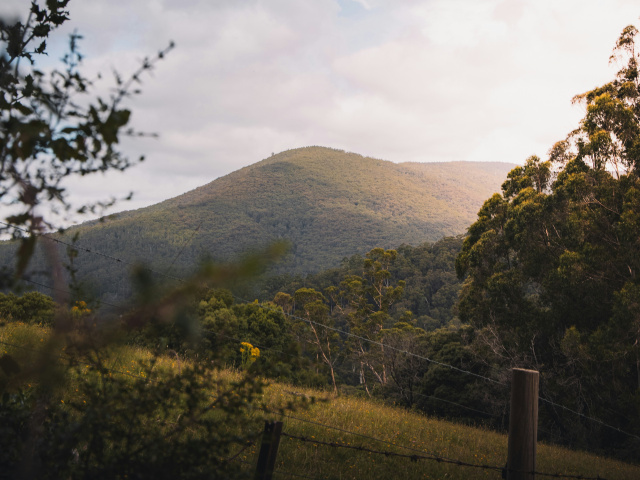
Transition anxiety
I had never heard the words ‘transition anxiety’ until a few years ago. As with many things in the past seven years, I learnt of the concept through being a parent and observing, then trying to assist, with the things that children go through as they develop. And like so many things I have learnt while trying to understand my children, I have realised that it is equally applicable to adults and adult society. Adults have just developed ways to manage, hide or rename the real psychological phenomena happening beneath the surface when it comes to coping with change and uncertainty.
Adults are big, suppressed kids, and a growing percentage of us are carrying forms of transition anxiety.
We fear the changes happening and those we know are coming. We struggle with why they are happening, what they mean to us and our loved ones. We fear for our safety. We fear the loss of the things we love – feelings, places, activities – and we desperately do not want to feel such loss.
Our children sometimes get sad and teary in bed at the end of a wonderful day, or a short holiday. They tell me they are sad because they will never be able to have that exact day again. I recall these feelings well. In fact, when I let myself, I still have them. It is a sense of irreversible loss, of something you love, something that made you feel good, made you feel alive – something you know you will never experience again.
It is a feeling, a child-like inconsolable grief that more and more of us carry daily about the world around us. A rising consciousness that the earth, as we now know it, is increasingly, constantly, ceasing to exist. A loss so big and indescribable that we cannot really process it; like my young children, we just feel like crying as we go to sleep.
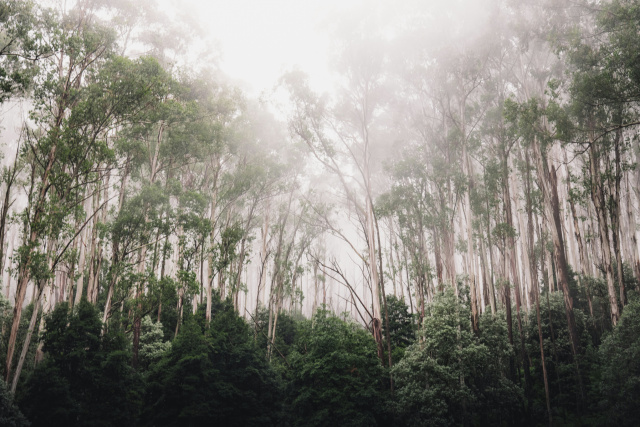
Grounding in a changing world
One way that humans attempt to deal with the losses inherent in life is to have ‘grounding’ in things that stay recognisably the same: special places we return to that barely change; relationships that are certain like those with family and close friends. My family are far from the only people who turn to nature to help them.
It is why we walk along a beach or in the bush when we are stressed, it is why we have pictures of wild places in offices, it is part of the reason many people have shacks, it is why many people feel a part of themselves and those they love breaking when a place they cherish is threatened or destroyed.
The pace of change I grew up with was much greater than it was for my parents. The pace of change my children will face will be far greater still. Finding constants and certainties to ground themselves will be an even bigger challenge, and likely an even greater need. With the impacts of climate change, will solace and certainty from the natural world even be an option for Vincent and Santiago?
Ecologists speak of ‘shifting baseline syndrome’, whereby each new generation takes the reduced world of ecological health and abundance it grows up with as the starting point for measuring the loss of it.
Not so long ago, the differences would have been hard to spot between the world of a grandparent and their grandchild. Soon the differences might be obvious between siblings, such as the two years that separate my sons. The stories parents pass on to their children about the places that framed their childhood may seem to them like the mythical tales of early settlers in ‘unsullied’ land do to us.
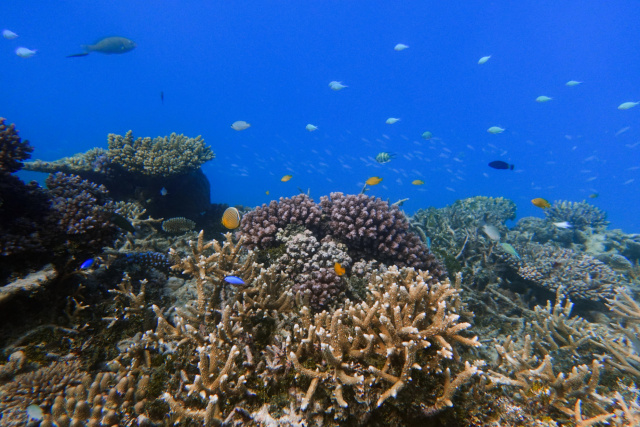
Theirs is a childhood, thankfully mostly unbeknownst to them, in which the Great Barrier Reef (the largest organism on the planet) is dying, the kelp forests have disappeared, the worst bushfires in our history have raged, rivers have ceased reaching the sea and healthy wombats and devils are rarely seen.
For a brief time, in the early days of the pandemic, there was no shifting baseline. Baselines were gone. Covid-19 gave us a window through which the seemingly unstoppable and ever-accelerating decline appeared surmountable. Waterways and airways cleared, animals returned to places they had not been for years, humans rediscovered nature with a revived love and respect and took more responsibility for their consumption.
A sudden global crisis showed that humanity could pivot almost instantly, that it could make rapid and radical structural change if it had to and if strong empathetic leadership and broad consensus were enabled.
If only we were capable of the same response with crises that are incremental. If only. By the time climate change is so brutal and so sudden that humanity is shocked into the kind of radical change witnessed during the pandemic, it will be far too late to do anything about it.
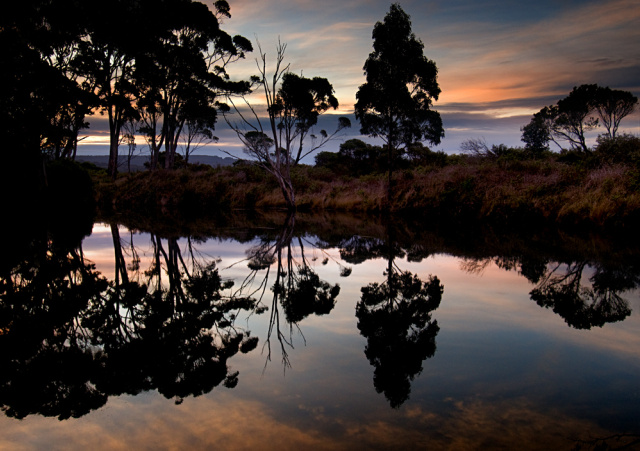
Cultivating despair or inspiring resilience?
Back at the creek, the icy water numbs my ankles as I shift stones with my sons to deepen our paddling pool. I must try to be more present and not write pointless essays in my head when two beautiful boys want to share the delights of nature with me. But what would it mean for us if the baseline is shifting so rapidly and so far, that it isn’t recognisable or relatable between generations? Would we live in different worlds? How would a parent share the joy of a cherished place with their children, if that place has changed and degraded to such an extent that the parent’s sense of it is dislocated, even if it may be a wild, authentic place to the children?
Already, I find myself lamenting how many natural places were more intact when I was a child: this river had forest on both sides; that bay used to be kelp forest; this stream used to be clear; there were no salmon pens in this bay; that shore never used to be covered in slime. Grief and even anger are no doubt rational responses to the plight of the natural world, but this is not fair to my children. It surely cheapens and degrades their special places and their sense of the wild. And anyway, what is it worth?
Would it inspire them to protect and restore such places? Or would it cultivate despair, hopelessness, paralysis?
I know we are already bringing Vincent and Santiago up with a deep love of nature. Their knowledge of it, and their thirst to understand and connect with it, is astounding. Their care for it is heartening. But is bringing them up with love, awe and wonder for the natural world setting them up for a life of loss and despair as it disappears all around them? Or is it giving them a key to resilience and sanity?
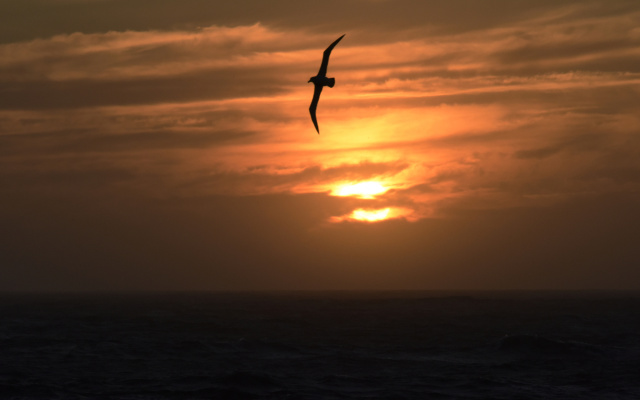
Facing it together
It is said that there can be no worse psychological harm than not recognising trauma, and perhaps equally, by doing nothing in a crisis. And yet, here in our little world on an island mostly forgotten at the bottom of a troubled planet, I feel like we could fight this better than most. We could shield our children from the worst of it. We could help lead our species away from the brink.
The era in which my children live will be defined by the greatest ecological challenges ever faced. They will need sanctuaries of hope to get through it. The continued existence of natural places that are not in collapse, that are still thriving, could offer resilience and reason to hope; perhaps only love could offer more.
These would be places where we will always be able to relate, where we will share the same world. We will not be detached from one another by distant baselines.
They will be places in which I hope one day I can look both my children in the eye, without shame, and say that I tried to protect their only home.
They call me again and I silently vow to stop thinking and just play. Perhaps the only offer of certainty I can give is that we all face this together, and that we can all look in the mirror and at each other and be proud of who we are and what we have done against the greatest of human failures.
Sanctuaries of certainty
In 2020, our family spent a lot more time up the creek and exploring bushland close to home. These seemed like the ideal locations for ‘home-schooling’ during the pandemic and a calming and engaging place to counter a human world that felt on the brink of unravelling. We searched for tadpoles, collected stones and sticks, sketched creatures, learned the names of plants and birds, talked to animals, and imagined other worlds.
Natural places close to home offered small sanctuaries of certainty, known and nurturing, away from the news of statistics, border closures, daily updates and death tolls. I caught a glimpse of collapse, of unimaginable change, of incomprehensible loss. The next chapters of the human book suddenly unwritten. The unread pages turned blindingly white.

A year on, humanity is moving through the pandemic and the dread has receded. There is again the mental space to recall the apocalyptic climate and biodiversity predictions and the unprecedented fires that preceded Covid-19. I am struck by the irony of going into nature with my children seeking solace, certainty, timelessness and a sense of security.
‘Dad! Come play with us!’
I offer a prediction to my boys, ‘One day, a long way off, you’ll come here as an adult, and you will still be able to remember individual boulders and trees and every bend in the river. You might even still be able to hear each other’s laughter. It will all come back to you – the wonder and joy you felt – and you’ll be shocked at how small it all looks.
Then silently, I wonder what it will be like when they return. Will the warmer water coat the rocks in algae and slime? Will the galaxias be gone? Will the creek even flow in summer?

Transition anxiety
I had never heard the words ‘transition anxiety’ until a few years ago. As with many things in the past seven years, I learnt of the concept through being a parent and observing, then trying to assist, with the things that children go through as they develop. And like so many things I have learnt while trying to understand my children, I have realised that it is equally applicable to adults and adult society. Adults have just developed ways to manage, hide or rename the real psychological phenomena happening beneath the surface when it comes to coping with change and uncertainty.
Adults are big, suppressed kids, and a growing percentage of us are carrying forms of transition anxiety.
We fear the changes happening and those we know are coming. We struggle with why they are happening, what they mean to us and our loved ones. We fear for our safety. We fear the loss of the things we love – feelings, places, activities – and we desperately do not want to feel such loss.
Our children sometimes get sad and teary in bed at the end of a wonderful day, or a short holiday. They tell me they are sad because they will never be able to have that exact day again. I recall these feelings well. In fact, when I let myself, I still have them. It is a sense of irreversible loss, of something you love, something that made you feel good, made you feel alive – something you know you will never experience again.
It is a feeling, a child-like inconsolable grief that more and more of us carry daily about the world around us. A rising consciousness that the earth, as we now know it, is increasingly, constantly, ceasing to exist. A loss so big and indescribable that we cannot really process it; like my young children, we just feel like crying as we go to sleep.

Grounding in a changing world
One way that humans attempt to deal with the losses inherent in life is to have ‘grounding’ in things that stay recognisably the same: special places we return to that barely change; relationships that are certain like those with family and close friends. My family are far from the only people who turn to nature to help them.
It is why we walk along a beach or in the bush when we are stressed, it is why we have pictures of wild places in offices, it is part of the reason many people have shacks, it is why many people feel a part of themselves and those they love breaking when a place they cherish is threatened or destroyed.
The pace of change I grew up with was much greater than it was for my parents. The pace of change my children will face will be far greater still. Finding constants and certainties to ground themselves will be an even bigger challenge, and likely an even greater need. With the impacts of climate change, will solace and certainty from the natural world even be an option for Vincent and Santiago?
Ecologists speak of ‘shifting baseline syndrome’, whereby each new generation takes the reduced world of ecological health and abundance it grows up with as the starting point for measuring the loss of it.
Not so long ago, the differences would have been hard to spot between the world of a grandparent and their grandchild. Soon the differences might be obvious between siblings, such as the two years that separate my sons. The stories parents pass on to their children about the places that framed their childhood may seem to them like the mythical tales of early settlers in ‘unsullied’ land do to us.

Theirs is a childhood, thankfully mostly unbeknownst to them, in which the Great Barrier Reef (the largest organism on the planet) is dying, the kelp forests have disappeared, the worst bushfires in our history have raged, rivers have ceased reaching the sea and healthy wombats and devils are rarely seen.
For a brief time, in the early days of the pandemic, there was no shifting baseline. Baselines were gone. Covid-19 gave us a window through which the seemingly unstoppable and ever-accelerating decline appeared surmountable. Waterways and airways cleared, animals returned to places they had not been for years, humans rediscovered nature with a revived love and respect and took more responsibility for their consumption.
A sudden global crisis showed that humanity could pivot almost instantly, that it could make rapid and radical structural change if it had to and if strong empathetic leadership and broad consensus were enabled.
If only we were capable of the same response with crises that are incremental. If only. By the time climate change is so brutal and so sudden that humanity is shocked into the kind of radical change witnessed during the pandemic, it will be far too late to do anything about it.

Cultivating despair or inspiring resilience?
Back at the creek, the icy water numbs my ankles as I shift stones with my sons to deepen our paddling pool. I must try to be more present and not write pointless essays in my head when two beautiful boys want to share the delights of nature with me. But what would it mean for us if the baseline is shifting so rapidly and so far, that it isn’t recognisable or relatable between generations? Would we live in different worlds? How would a parent share the joy of a cherished place with their children, if that place has changed and degraded to such an extent that the parent’s sense of it is dislocated, even if it may be a wild, authentic place to the children?
Already, I find myself lamenting how many natural places were more intact when I was a child: this river had forest on both sides; that bay used to be kelp forest; this stream used to be clear; there were no salmon pens in this bay; that shore never used to be covered in slime. Grief and even anger are no doubt rational responses to the plight of the natural world, but this is not fair to my children. It surely cheapens and degrades their special places and their sense of the wild. And anyway, what is it worth?
Would it inspire them to protect and restore such places? Or would it cultivate despair, hopelessness, paralysis?
I know we are already bringing Vincent and Santiago up with a deep love of nature. Their knowledge of it, and their thirst to understand and connect with it, is astounding. Their care for it is heartening. But is bringing them up with love, awe and wonder for the natural world setting them up for a life of loss and despair as it disappears all around them? Or is it giving them a key to resilience and sanity?

Facing it together
It is said that there can be no worse psychological harm than not recognising trauma, and perhaps equally, by doing nothing in a crisis. And yet, here in our little world on an island mostly forgotten at the bottom of a troubled planet, I feel like we could fight this better than most. We could shield our children from the worst of it. We could help lead our species away from the brink.
The era in which my children live will be defined by the greatest ecological challenges ever faced. They will need sanctuaries of hope to get through it. The continued existence of natural places that are not in collapse, that are still thriving, could offer resilience and reason to hope; perhaps only love could offer more.
These would be places where we will always be able to relate, where we will share the same world. We will not be detached from one another by distant baselines.
They will be places in which I hope one day I can look both my children in the eye, without shame, and say that I tried to protect their only home.
They call me again and I silently vow to stop thinking and just play. Perhaps the only offer of certainty I can give is that we all face this together, and that we can all look in the mirror and at each other and be proud of who we are and what we have done against the greatest of human failures.
You might like...
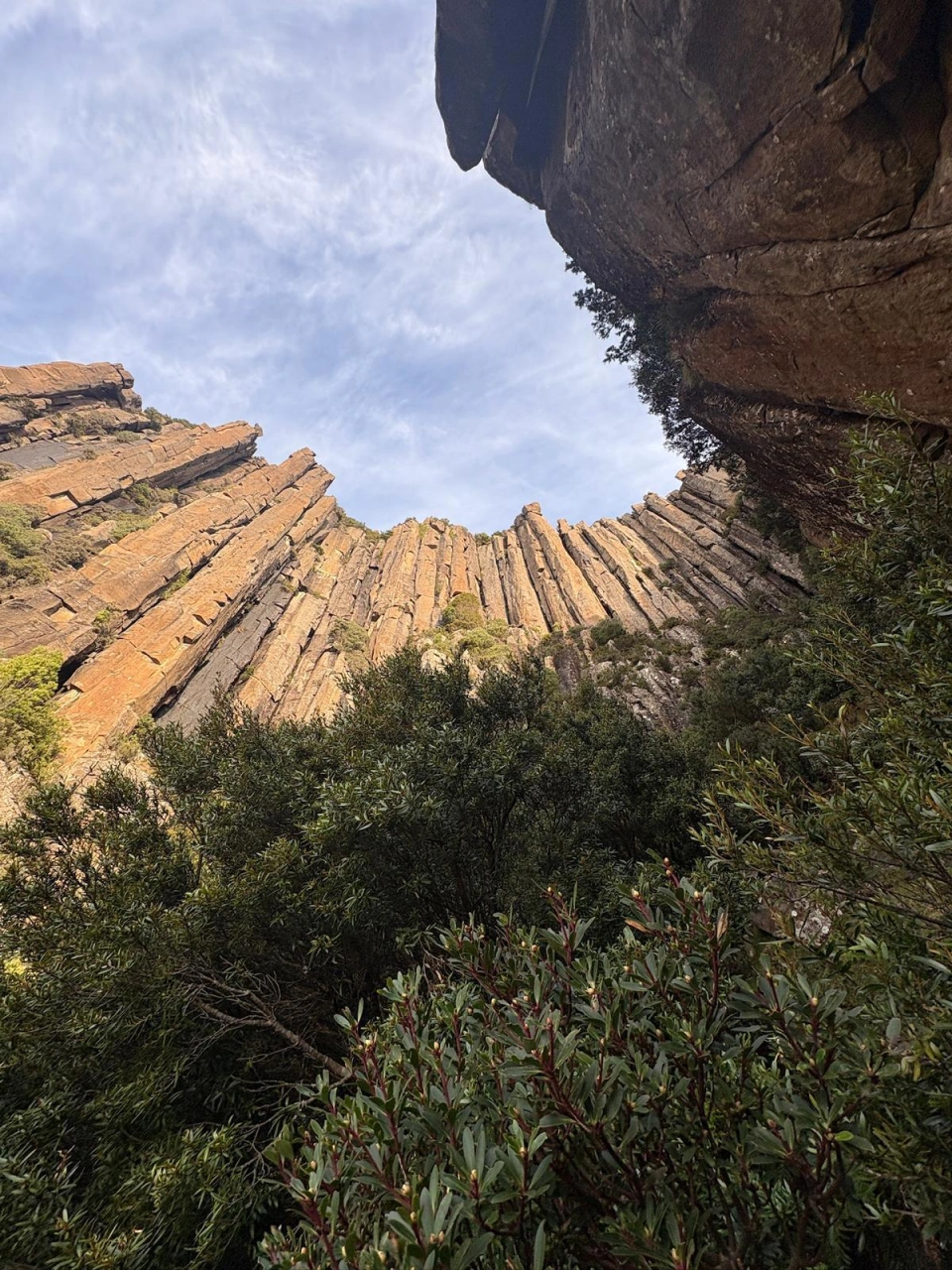
Mountain Reverence

'The Fallen Star'

Nature's Protection: Heart connection is the key

A place to call home
Newsletter
Sign up to keep in touch with articles, updates, events or news from Kuno, your platform for nature

